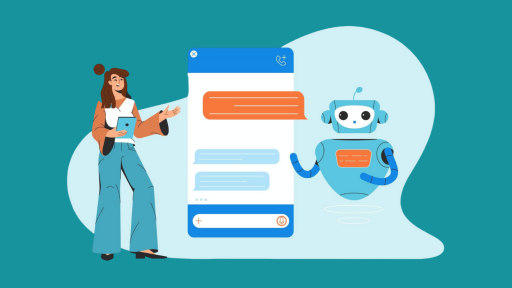AI remained at the forefront of change across the contemporary business markets and made it possible to achieve extraordinary objectives. Whether it’s in making business processes more efficient or improving customer satisfaction, AI is already more than a distant concept for the future- and it is an opportunity that new ventures, SMEs could indeed leverage on.
In the case of startups specifically, AI integration means flexibility in growth, productivity and bringing creativity through solutions unachievable by conventional methods. This is where AI presents opportunities for visionary entrepreneurs to build solutions that can mess up, analyze, learn, and even create on behalf of their users.
More and more companies seek AI to address their issues and boost their performance because they see how AI can help them. The topics that one is likely to find in this blog comprise a list of the various AI business ideas that can also help entrepreneurs. The solutions developed cover many industries, which allows looking into how business ideas that utilize AI can be implemented in the future.
This guide will motivate anyone interested in a startup or small business using the best AI tools for business to “turn ideas into reality”. Welcome to the world of AI startup ideas and find out how AI can revolutionize your business.
Section 1: Why Startups Should Leverage AI
1. Benefits of AI for Startups
AI provides startups with an advantage they cannot find anywhere else, including a means of growing large, being effective, and developing ahead of their competitors.
Scalability: The scalability of AI systems means that even simple tasks and data processing do not require a linear increase in costs, and thus startups can expand rapidly without proportional levels of stress on their resources.
Efficiency: Automations help to cut out the jinakesses, so departments do not have to waste time and effort on such trivialities, and can concentrate on more important strategies.
Innovation: AI enables startups to provide solutions that were initially unimaginable due to customized customers’ experiences and innovative products, which puts the startups in a new league as disruptors of the market.
2. In what way can AI help brands gain competitive advantage?
Data-Driven Decision Making: AI helps startups work through immensely complex information within a shorter amount of time affording more effective solutions.
Enhanced Customer Experiences: Personalization technology such as recommendations, chatbots, and predictive analysis help startups to deliver high quality consumer experiences that enhance overall consumer satisfaction and retention.
Agility and Adaptability: AI helps startup companies react quickly to Market shifts since predictive models and real-time data are more efficient.
3. AIs Tools Contribution to Managing the Current Business Environment
AI tools are the backbone of innovation for startups, enabling them to build efficient and future-ready business models:
Marketing Automation: There are specialized AI tools that make the ad targeting, the email marketing or the social media advertising all much more effective in terms of cost of sales.
Operational Optimization: Whether it’s the contact with customers, up to the automation of certain work-flows, high productivity is possible with low resources for startups.
Product Development: In today’s context, AI accelerates the creation of prototypes, field trials, and feature improvement, helping reduce product development cycles and increase market suitability.
AI has the potential to put these startups at par with conventional businesses and also enable the startups to occupy a place that is not occupied by other businesses in their respective lines of business. Today the demand for AI solutions is increasing relentlessly, so incorporation of AI technologies is no longer a preference but a cornerstone for success.
Section 2: A Comprehensive List of AI Business Ideas
1. AI-Based Retail Assistance Solution
Description: Technologies that help customers to achieve their goals during the shopping and support the work of the store or an individual seller.
Applications:
- Virtual shopping avatars for customer service.
- Online recommendation engine to enhance its sales.
- Enterprise resource planning applications for stock management in order to minimize usage of excess stocks.
Target Market: Concerned both by e-commerce firms who sell solely on the Internet, brick and mortar stores that offer shopping in a physical space, and retailers who seek to integrate both aspects.
2. AI-Based Entertainment Platform
Description: AI platforms to generate, select and recommend the content and variety of entertainment making it more interactive and easy to consume.
Applications:
- Users prefer to choose movies or episodes on their own with the addition of personalized recommendations.
- AI application in game development for adaptation of stories and characters and adjusting to player behaviors.
- Social networks and; other Internet resources employ artificial intelligence for fine-tuning the material in accordance with the user’s interests.
Market Potential: The increasing demand for personalised news consumption and engaging gaming experiences.
3. AI-Based Recruitment App
Description: The solutions related to the AI use to help organizations bring more efficiency into the recruiting process and its match.
Applications:
- Resume parsing and skill matching were used for effective short listing.
- Scheduling of interviews with the candidates and conducting interviews more often through automation.
- Analytics for evaluating the potential of a candidate.
Advantages: Reducing time taken in the hiring process and overall improved candidate quality.
4. AI-Based Logistics and Supply Chain Management Solution
Description: Application of artificial intelligent systems for effective and optimal outcome in logistics and supply chain activities.
Applications:
- Mapping to enhance the delivery cycle speed.
- Demand forecasting in decision-making for inventory management.
- The use of constant monitoring and data analysis of supply chain performance.
Benefits: Time, money and service enhancements or often called the three Cs, costs, clients and cycle time.
5. AI Healthcare Platform
Description: AI solutions which offer high-end healthcare answers ranging from diagnosis to patient care.
Applications:
- AI-assisted telemedicine as the first instance of teleconsultation services.
- Application of AI in medical imaging in order to avail accurate diagnoses faster.
- Recommendation and decision making for healthcare of patients.
Potential Impact: Higher quality and speed of the decisions on healthcare access and data relevance.
6. AI Marketing App
Description: An application of AI for marketing in an effort to enhance the outcomes during the promotion and advertisement of products and services to consumers.
Applications:
- AI in the field of political campaign customization and identifying voter demographic.
- Real time processing to fine tune the marketing programs.
- Processing of customers’ complaints and inquiries as well as lead generation through chatbot.
Benefits: Higher return can be gained, improving the customers targeting, and minimising effort and operations.
7. Machine learning based content creation tool
Description: AI tools for producing thematically creative and quality contents in textual, image and video forms.
Applications:
- Marketing content for small, medium and large business firms.
- Products and Service, Branding and creative campaigns.
- Writing of posts which are posted on the social media platform.
8. AI Content Creation Tool
Description: Simplified intelligent process automation tools for content generation for blogs, articles, and reports, etc.
Applications:
- Content creation that is based on optimizing for search engines.
- Providing information on educational and promotion material.
- Impact of tools or applications in new performance trajectory for digital marketing departments.
Highlights: Frequently delivering content and highly flexible volume-based content services.
9. AI eLearning Platform
Description: Computer-aided teaching solutions allowing the formation of the intelligent as well as individualized learning environment.
Applications:
- Recommendations of courses based on learner characteristics.
- Computer programs and applications that provide an automatic evaluation of the learner’s performance.
- Gamification for utilization of fun and drive for application of concepts into practice.
Benefits: Availability, student oriented lessons, and enhanced results.
10. Artificial Intelligence Energy Management Solution
Description: Machine learning tools that were developed with the purpose of increasing energy efficiency and enhancing the sustainability processes.
Applications:
- Automated energy system for use in homes and offices.
- AI for renewable energy management and application for the grid.
- Energy audits so as to address areas that can be optimized for the least energy consumption.
Potential: Promoting sustainable causes around the world and efficiency in operating expenses.
11. An AI-Based Smart Finance Robotic Process Automation App
Description: Automated financial systems and procedures to enhance the effectiveness and efficiency of working for fst24.
Applications:
- Fraud prevention and risk assessment.
- This distance will allow greater levels of automated budgeting and financial reporting.
- Invoice receiving and books balancing.
Impact: Savings in time together with money cost and as well as increased accuracy in financial disclosure.
12. AI IoT App
Description: Integrating AI IoT for better and improved devices and systems.
Applications:
- Smart home applications in lighting, security and energy conservation.
- Automated production for the forecasting of equipment problems.
- Smart clothing for health care services.
Market Trends: Expansion of AI technology in industries which require IoT devices.
13. AI-Driven Cybersecurity App
Description: To improve the cybersecurity threat detection, advanced AI solutions are used.
Applications:
- Disadvantages and threats of the virtual environment.
- Computerized threat response systems.
- Improving data privacy using AI encryption mechanism approaches.
Importance: This post is very relevant to the high stakes today, especially with the prevalence of cloud-based solutions and outsourcing services that may pose a threat to a company’s information.
Section 3: Best AI Tools for Business
1. Data Analysis Tools
AI tools that help businesses analyze vast amounts of data, uncover insights, and make data-driven decisions:
Tableau
Description: A software product for data visualization targeting business analysts and data scientists along with a machine learning tool to find patterns.
Features: Easy to use drag and drop feature for the dashboard, using data analytics for an automated prediction, and dynamic data updating.
Ideal For: Companies looking to provide easy to understand data analysis to its customers.
IBM Watson Analytics
Description: An integrated and automated data analysis device that enables consumers to explore, combine, and predict data efficiently.
Features: Query formulation in natural language and questioning, insights derived by the system on its own, as well as system connectivity with other instruments.
Cost-Effective Option: Provides commercial and affordable pricing models for small and medium enterprises.
2. Automation Tools
AI tools to automate repetitive tasks, improve efficiency, and reduce operational costs:
Zapier
Description: An integration tool that links applications and makes their operations automatic.
Features: Free, the app can be installed in a minute, no coding is needed, and it works with thousands of apps.
Benefits for Startups: Reduces the need for performing repetitive tasks such as answering emails and moving data from one to another location.
UiPath
Description: An AI-RPA solution that simplifies business process improvement.
Applications: Automated accounts receivable and payable system, accounts payable and receivable automation, resulting in invoice processing and data entry automation as well as customer services.
Cost-Effective Plans: Increased credit facility in which small businesses can access credit at flexible prices.
3. Customer Engagement Tools
AI-powered platforms for personalized customer experiences and enhanced engagement:
HubSpot CRM
Description: An all in one customer interaction tool with artificial intelligence for different aspects of sales and marketing.
Features: Email marketing, using artificial intelligence in responding to frequently asked customer inquiries, and sending customized product messages.
Ideal For: Any organization that needs to be agile in interacting with customers and can follow the inputs provided in this app.
Drift
Description: Real-time customer engagement marketing using artificial intelligence conversational marketing platform.
Applications: Chatbots, direct communication, and lead intelligence.
Benefits: Increases conversion rates due to the individual approach to communicating with the audience.
Thanks to these AI tools, it is possible to commercially develop new AI business ideas without great resources, so that business startups can continue to compete in their niches.
Section 4: How to Launch an AI Startup
1. Validate Your AI Startup Idea
But how can you guarantee that your idea will be well received in the marketplace?
Steps to Validate:
- One has to survey and interview the potential users.
- One of the concepts is to analyze competitors who offer similar solutions.
- Create an MVP to minimize the chances of the idea’s failure and to see if it works on a smaller scale.
Focus Areas:
- Make certain your solution solves a problem that your customer or user experiences or a process that is not efficient.
- Stress the benefits of using AI as compared to conventional techniques in organization.
2. Create a competent team with professional knowledge in Artificial Intelligence.
Having a strong team is crucial no matter whatever idea you are planning to implant in your AI startup.
Core Roles to Fill:
AI/ML Developers: Those which are experienced in specific methods or tools such as TensorFlow or PyTorch or Scikit-learn.
Data Scientists: Those with the skills of data analysis, model building and decision-making.
Product Manager: Helps maintain that the firm’s product development is in line with the market demands.
UI/UX Designers: Emphasize aesthetics since the primary interface of AI solutions is with the users.
Hiring Tips:
Recruit via such schools or organizations with undergraduates and graduates with AI skills and interest.
Have an offer of stake or flexible working time to ensure you get the best human resource in the early stages of the business.
3. Make use of Artificial Intelligence Tools and Platforms
Build on the existing interface and extend the capability to work more efficiently and at a lower rate.
AI Platforms:
Google Cloud AI: In Machine learning and natural language processing feature extraction and as a preprocessing step.
Microsoft Azure AI: Provides tools for image recognition, creation of a chatbot and analysis of data.
Amazon Web Services (AWS) AI: Offers ready to use API’s for vision, speech and even for predictive analytics.
Open-Source Libraries:
Build your AI models with Keras, integrate OpenCV or fine-tune models with Hugging Face.
Funding Opportunities:
Looking for patents in more specific AI-oriented accelerators, venture capital firms, or the next governmental subsidies.
4. Market Research and Customer Analysis
Knowing your customers is crucial when it comes to the development of an AI solution.
Steps to Conduct Research:
When it comes to viewing trends and topics, it is possible to utilize the tools, such as AnswerThePublic or Semrush, with the help of which it will be easier to analyze the market with the help of AI.
Take time to ask beta testers regarding their opinions on your product to improve upon.
Identifying Pain Points:
Research documents in the industry to identify gaps that can be solved by AI intervention.
Too often, customers’ needs remain unidentified and unexplored, so the focus should be made on monitoring and analyzing customer’s behavior and patterns.
5. Product Development and the Initial Roll–Out
Once your foundation is strong, focus on bringing your product to the market:
Development Process:
Repeat the development of your MVP with the feedback that you got from the users.
Make sure the product fits the concept of scalability and security standards.
Launch Strategies:
Make initial usage completely free or at a minimal fee, to gauge the population it will be useful for.
Promote those specific applications and advantages with AI marketing campaigns.
Post-Launch:
In other words, retain control of performance measures and customer satisfaction.
They should be updated as often as is necessary depending on market changes and possibly technical improvements.
Depending on these steps, you will be able to launch an AI startup company with full understanding of the necessary market needs as well as the best AI tools for your business.
Conclusion
Technology with advanced artificial intelligence seems to have a bright future with the startup scene and an area of disruption. Using new ideas and applying state-of-the-art technologies, numerous startups may become pioneers of their markets. From discovering new AI business opportunities, to selecting the right AI tools for business, the possibilities are endless. Companies who are ready to include Artificial Intelligence technologies into their workflows and products and services aren’t just constructing new business – they are creating a future.

I’m Navin Sharma, a passionate Full Stack Developer with over 20 years of experience in the tech industry. Throughout my career, I’ve had the privilege of working on a variety of exciting projects, developing everything from dynamic web applications to complex back-end systems. My expertise spans both front-end and back-end technologies, and I thrive on building solutions that are not only functional but also scalable and user-friendly.
Beyond my hands-on development work, I’ve contributed to several well-respected tech and startup blogs, where I share my insights on the latest trends, development strategies, and best practices in the world of web development. I also have a strong background in app analysis, where I’ve helped companies optimize their products for better performance and enhanced user experience.
Whether I’m working on a challenging coding problem or mentoring fellow developers, I’m always eager to learn, innovate, and push the boundaries of what’s possible with technology.





